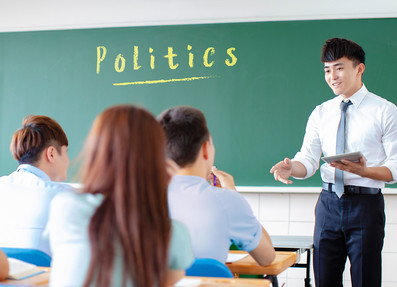What's Happening Events
Limited quota. First come first served. Please register now !
Sep 2020
(Sat)
eSeminar: How to deal with politics in classroom setting
- Subject
- College of Humanities and Law, HKU SPACE|Media & Communication, Education
Thanks for your participation!
The above event has been completed successfully. Please look forward to the upcoming events.
- Date & time
- 19Sep 2020 (Sat)11:00 - 12:30
- Venue
- Online seminar via Adobe Connect Webinar (Cantonese, supplemented with English)
- Fee
- free
- Speaker
-
- Professor Lo Shiu Hing Sonny
Professor Lo Shiu Hing Sonny
Expert in Politics and Political Science, Deputy Director (Arts and Sciences), HKU SPACE
- Enquiry
- 3762 0868 (media_comm@hkuspace.hku.hk)

Politics have penetrated extensively into Hong Kong's society -- a reflection of the phenomenon of hyperpoliticization in the city. How can teachers deal with political issues inside classrooms? How should we approach the sensitive topics of politics and liberal studies? As a political scientist and an academic for 30 years, Professor Sonny Lo will offer some advice to us on how we cope with political topics and issues in classroom settings.
Politics, according to the father of the 1911 Chinese revolution, Sun Yat-sen, refers to "public affairs." Exactly because of the comprehensive scope of politics, it can be highly subjectively treated -- a situation of Hong Kong at the present. However, politics can be a highly objective academic discipline, backed up by rigorous literature review, accurate event descriptions, and objective political analyses. How can we achieve relative objectivity?
The course will first go through the principles of tolerance (tolerating different views), balance (balanced in political thinking and analyses) and respect (mutual respect of different views) in the handling of political issues in our teaching pedagogy. Then it will go to the details of how to select readings, how to lecture on political topics and how to teach politically sensitive issues through an evidence-based and a balanced methodology, including the use of class debates, tutorial discussions, teacher's guidance of the students, in-class exercises, assessment rubrics and feedback forms that inform students of their strengths and weaknesses in presenting their arguments with evidence.
Professor Lo will put forward some scenarios for students' thinking, suggested solutions, and discussions. Secondary school teachers, university tutors, lecturers and ordinary citizens interested in the pedagogy of teaching politically sensitive issues will find this course interesting, interactive, and rewarding.





